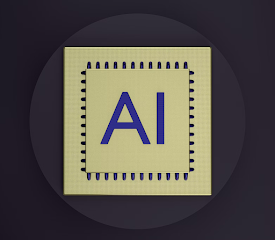One of China's most prominent digital giants, Alibaba, announced the introduction of two new artificial intelligence models on Friday, greatly expanding the potential of the technology.
Unlike ChatGPT and Google Bard, the open-source models Qwen-VL and Qwen-VL-Chat are vision language models, meaning they "read" images rather than text. Complex functions like delivering directions by reading street signs, resolving mathematical problems based on an image, and creating a narrative from a series of images are all promised by Qwen-VL-Chat. According to the business, it may, for instance, scan an image of a hospital sign written in Mandarin and translate it into English or assist a news agency in creating a caption for a picture.
On Friday, The other new product is Qwen-VL, an enhanced version of its image-reading chatbot that can now scan images with higher resolution.
As the technology progresses from gimmick to true game-changer, these new variants of A.I. are the most recent rounds fired in the arms race among developers to construct ever-more complex tools. Alibaba, for instance, claims that its new image-scanning technology has considerable potential to assist those who are blind or visually impaired with shopping. For instance, they will be able to scan an item and have the chatbot read the label to them after they have scanned it.
Both models will be made available on the well-known firm Hugging Face, which offers a library of artificial intelligence models, and on Modelscope, a platform owned exclusively by Alibaba Cloud.
The introduction of Alibaba comes just one day after Meta unveiled an artificial intelligence (AI) model modified for writing code based on the open-source Llama 2 model introduced in July. For the past few months, Alibaba has made an effort to stay up with Meta's A.I. rollouts. The two open-source large language models that serve as the foundation for Friday's releases, Qwen-7B and Qwen-7B-Chat, were released by Alibaba earlier this month. The two businesses reached an agreement in July to use Alibaba's cloud division to distribute Meta's Llama 2 model to the Chinese market.
Alibaba is allowing users to modify the tools to create their own apps or conduct research by making these new models open-source. Instead of needing to take on the laborious effort of creating a huge language model from scratch, the majority of A.I. businesses expect that users would transform open-source models into solutions for extremely particular use cases. The businesses offer their proprietary models as a service in addition to the open-source options to gain market share in the developing sector.

Comments
Post a Comment